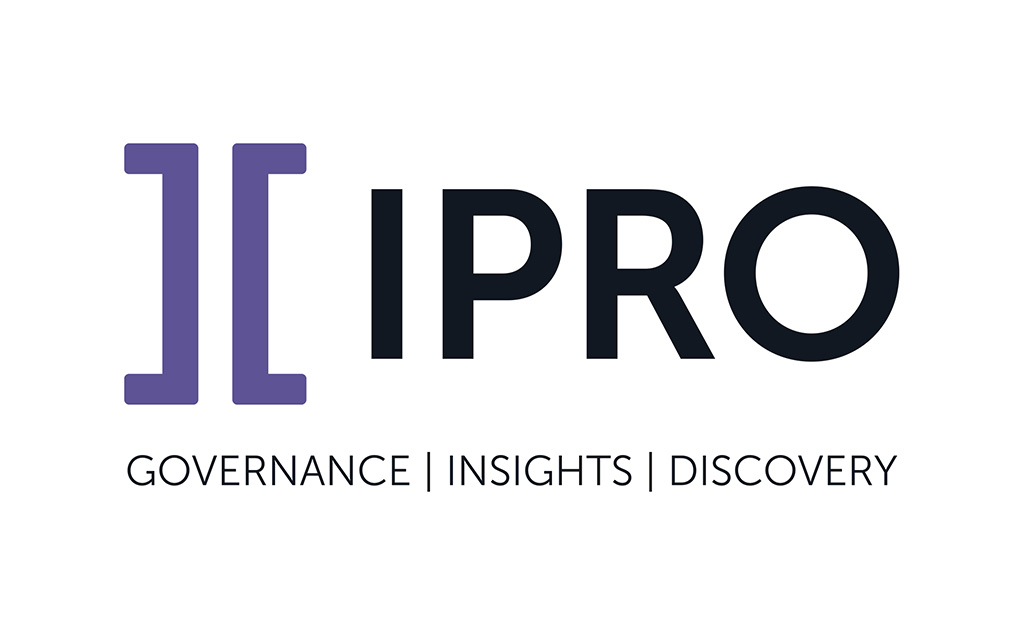
Introduction
While an economic downturn is always possible, 2023 is likely to present more financial challenges to corporations, and legal ops in particular, than recent years.
This economic climate will affect corporate legal departments generally and their legal operations (legal ops) teams specifically. It is incumbent on legal ops to take the threat of a global recession as an opportunity to enhance their capabilities and provide maximum value.
In this post, we’ll explore how the global economy will affect the legal industry and legal ops in particular in 2023. Then we’ll share how legal ops teams can take advantage of some of the opportunities an economic downturn may present. Finally, we’ll introduce seven steps legal ops can take now to prepare for the challenges 2023 may bring.
Contents
How the global financial climate will shape the legal industry in 2023
How legal ops can seize the opportunities that an economic downturn presents
7 steps legal ops can take now to prepare for the challenges of 2023
How modern technology will help legal ops face the challenges of 2023
Legal ops can continue to thrive in 2023
How the global financial climate will shape the legal industry in 2023
With record-level inflation and rising interest rates, commodity prices are reaching new heights and a global recession may be on the horizon in 2023.
A recession would necessarily affect legal ops teams, which support the non-legal needs of corporate legal departments through expertise in project management, finance, technology, and other areas of business operations.
Outside counsel billing rates will likely increase even more in 2023.
According to a recent Wells Fargo report, law firms have been facing financial challenges throughout 2022 already. More specifically, the average law firm net income fell by 7.3% and profits per equity partner was down 8.5% through the first nine months of 2022. These downward performance trends will most likely result in layoffs and higher billing rates in 2023. Owen Burman, senior consultant for the legal specialty group, further pointed out that “two consecutive years in which inflation trumped billing rate increases are contributing to higher planned rate increases at this point than we’ve ever seen for 2023”. That said, legal teams that outsource their eDiscovery to outside counsel will have to be more mindful of the increasing fees and reassess the budget in line with the team’s priorities.
The good news is that a recession may not hit the United States until late 2023, so you have time to prepare for the worst. Plus, an economic downturn as well as higher outside counsel billing rates could give rise to new opportunities that you can seize—if you start preparing now.
How legal ops can seize the opportunities that an economic downturn presents
While an economic downturn would be harmful to many industries, certain sectors of the legal industry will almost certainly continue to thrive. As we saw in 2008, economic issues can create an atmosphere of frustration and unrest that ultimately increases the demand for legal services.
But, somewhat paradoxically, shrinking budgets will mean that any increase in demand will not be accompanied by an increase in resources for legal departments. This new dynamic will require legal ops to do more with less, which to a certain extent implies insourcing more of their legal tasks in 2023.
Your legal ops team can adapt by increasing efficiency, implementing creative processes and staffing solutions, and investing in digital tools to streamline your workflows.
Let’s take a look at seven specific steps you can take now to prepare for an economic downturn in 2023.
7 steps legal ops can take now to prepare for the challenges of 2023
If you’re reading this post, you’re already thinking ahead as to how your legal ops team can rise to the challenges that 2023 will bring. Use this seven-step checklist to guide your approach and start the new year off on the right foot.
1. Make sure your head of legal ops has the right experience.
Legal ops occupies the intersection of law, business, and technology. To integrate those diverse perspectives and lead your legal ops team to success, you need the right person at the helm. The head of your legal ops team doesn’t necessarily need to be a lawyer. In fact, while many legal ops managers have advanced degrees or qualifications such as an MBA or a certified public accountant license, others have learned on the job through extensive hands-on experience.
Regardless of their background, the head of your legal ops team should have an understanding of finance and a working knowledge of modern technology. If your current head of legal ops is not proficient in both of these areas, it may be time to consider bringing in someone new.
2. Improve collaboration with other departments.
Cross-departmental collaboration is essential to the success of any legal ops team. Collaborating with in-house counsel, information technology (IT), and other departments can help ensure company-wide regulatory compliance, optimize internal processes, and increase overall efficiency.
3. Align your legal team’s objectives with broader business objectives.
A key component of collaboration is aligning your legal team’s objectives with those of other teams within your company and the company’s overall vision. You can do this by creating objectives and key results (OKRs) with in-house counsel. OKRs are general goals and benchmarks to meet on the way to achieving those goals. You can also outline ways that the legal team can contribute to your company’s high-level objectives.
4. Take on more tasks from other departments.
Many tasks that fall to the corporate legal department don’t require a law degree to perform, including budgeting, billing, staffing, contract management, and regulatory compliance. By taking responsibility for the administrative and non-legal components of those types of work, legal ops can give in-house counsel more time to focus on substantive and strategic legal work. This can save your company money by reducing the amount of legal work that in-house counsel has to delegate to outside counsel and ensuring that the company is acting in accordance with its long-term goals and strategy.
5. Track metrics.
A good legal ops team will use data analytics and metrics to track the legal department’s progress, evaluate its effectiveness, and implement cost-saving measures. Try tracking the following categories of metrics:
- the number and cost of legal complaints, demand letters, and preservation notices;
- total litigation spend per matter and per month;
- the costs of in-house counsel versus outside counsel;
- the number of internal complaints and investigations;
- year-over-year (YoY) growth (which compares your company’s financial performance from each month of this year with the same month of the previous year); and
- actual spending in comparison to projected spending and budget.
By understanding more about how your legal department is performing, you can identify areas for improvement and adapt accordingly.
6. Improve workflows and productivity.
A fundamental way to maximize the value of the legal department is by making your team more efficient. You may increase efficiency by streamlining workflows, providing adequate training for your staff, and creating systems to help them succeed. You can also increase productivity by adopting helpful technology such as an e-signature tool, e-billing software, or other digital tools that can save time and reduce workloads, as we will explain in more detail below.
7. Leverage technology.
Technology is the most direct and cost-effective way to boost the legal department’s efficiency.
To handle ever-larger volumes of work in less time, consider what processes you can automate and what digital solutions you can adopt. Here are some of the tools legal ops can benefit from using:
- Time-tracking software that allows employees to track their time by task, client, and project, returning valuable metrics that legal ops can evaluate;
- Calendaring tools that automatically calendar court-imposed deadlines and other important events;
- Task-management systems that help your team organize projects and prioritize tasks;
- Billing technology that manages billable hours, automates invoicing, and connects directly to payment systems;
- Regulatory compliance and response tools that help uncover risks to your organization’s sensitive information and securely send information to the right reviewers;
- In-place search systems that directly connect to your company’s data sources and allow you to rapidly identify important documents across multiple sources from a single dashboard without having to rely on your company’s IT department to access data; and
- End-to-end eDiscovery platforms that automate the legal hold process and permit in-place searching, data review, and analysis.
Let’s take a closer look at a few tools that can help legal ops teams support their corporate legal departments in an economic downturn.

Start 2023 strong
How General Counsel can thrive during an economic downturn | A 2023 Playbook
How modern technology will help legal ops face the challenges of 2023
Technology will play an even more important role in the success of legal ops teams in 2023 as economic pressures rise. Modern technology such as in-place search solutions and end-to-end eDiscovery platforms are the must-have tools for 2023.
For example, Live Early Data Assessment (Live EDA) is a proven in-place search solution that navigates and reviews live data to provide insights and uncover potential risks. Live EDA allows users to quickly locate relevant data across multiple repositories from a single, intuitive interface. It then compiles that information into a content index that tells the user where the information is located, why it is stored there, how long it has been there, and who has access and modification privileges.
ZyLAB ONE, on the other hand, is an end-to-end eDiscovery platform that allows users to automate their legal hold process and search, review, and analyze data in place. ZyLAB ONE can handle large volumes of data and different types of data easily and efficiently, allowing legal teams to achieve more in less time.
Modern tools such as these can revolutionize your ability to access data and allow you to provide even greater support to your legal department. These technological advances are the key to helping legal ops teams adapt to the challenges that 2023 is likely to bring.
Legal ops can continue to thrive in 2023
Legal ops is in a unique position to improve the efficiency of not only the corporate legal department but also the business as a whole. By taking the steps outlined above and incorporating modern legal technology into your daily operations, your legal ops team can navigate the most pressing challenges that arise in 2023.
Contact IPRO or schedule a demonstration today to learn more about Live EDA, ZyLAB ONE, and our other legal workflow tools.



